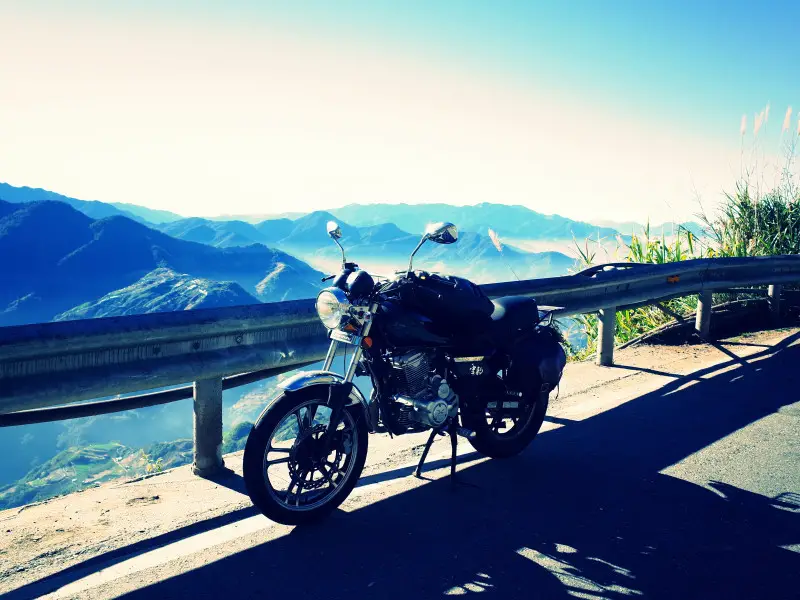Kicking a football around with some new friends of mine a while back became a more interesting encounter than I’d anticipated. Out lobbing deft (theirs) and daft (mine) passes in the twilight hours, the conversation turned into one of comparative history, aesthetics and value systems. One fellow thought I was too lavish in my praise for the local and shot hard my way: “You’re just one of those guys who loves Taiwan.”
He was right.
It may be unavoidable that we view and experience the world through goggles frosty with anticipated displeasure, grimy with inherited ignorance, or rosy with newfound delight - and there’s so much to appreciate here!
I very much enjoy living in Taiwan and am incredibly grateful for the opportunities and experiences this impressive nation has afforded me. Here, I’ll begin sharing my take on my first of what will hopefully be many exciting, enriching decades living here. And lest I wax too rosily, in the not-too-distant future I’ll be following up this article with a few things that I don’t particularly fancy.
Without any further ado, here are ten things I love about ten years living Taiwan.
1. Stability & Safety
Taiwan enjoys a climate of internationally acclaimed safety and security, both physical and economic. Time and time again, Taiwan ranks among the safest countries in the world, in all the polls that have the courage and/or sense to realize it is, in fact, a country.
Kids walking the streets? Snug as bugs in rugs. City verandas that blend seamlessly into the sidewalk? Vandalized only slightly more often than the dark side of the Moon. Your Aston Martin is roughly as safe, parked just about anywhere you’d like, as my rusty fourth-hand bicycle. There is a pervasive culture of respect that we westerners cannot but find humbling and beautiful, insofar as we are paying attention. I’m not saying don’t lock your bike or your doors - I have had an umbrella and a motorcycle helmet stolen - but I am saying that there’s less to worry about here than almost any other cosmopolitan locale I’ve been to or even heard of.
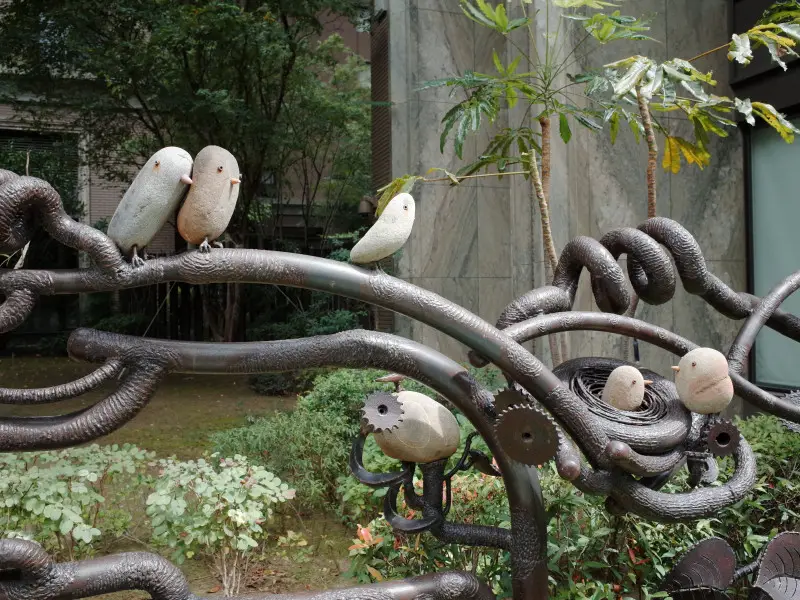
2. Health Care
For those of us hailing from concrete jungles still entrenched in a ‘hostage-style’ of health care, Taiwan’s national single-payer health care system may seem even suspiciously affordable and convenient. America has a ‘hostage-style’ health care system, metastasizing from paradigms like: “Don’t want to suffer and/or die? How much are you willing to pay for the chance not to? It’s our duty, after all, to milk you for every cent we can. That’s free market capitalism at its best!”
Here, a particularly nasty cold might set you back half an hour’s teaching pay. Acute appendicitis requiring emergency surgery and an overnight stay? Most of a week’s pay, perhaps.
Octogenarian views on medical marijuana and a somewhat draconian avoidance of opiates notwithstanding - I was literally laughed at by a physician once immediately after I suffered a severe motorcycle accident for requesting painkillers that actually killed pain, though my Taiwanese partner swears he wasn’t laughing at me - for just about everything but the most avant-garde surgeries and treatments, you will find yourself taken care of here, without sacrificing an unnecessary, unpalatable portion of your rainy day fund.
In addition to subsidizing much of what we consider western medicine, the national health care system also facilitates access to traditional Chinese medicine clinics. I had a wonderful experience once with a traditional physician in Taoyuan, a few months after the aforementioned accident, with lingering ‘post-concussion syndrome’ still bogging me down. Though it doesn’t necessarily speak to the quality of treatment, I loved the feel of my experience with Chinese medicine - the smell of the office; the way I was treated by the staff; and most importantly, the wonderful talk I had with the doctor. Though I can’t say for sure what did it, I was soon feeling back to normal again.
What may be the most important critique of western medicine practiced how it typically is, is that it treats each body as a fungible assortment of loosely interrelated systems functioning each according to relatively static principles. Ergo, there’s no real need for much doctor-patient relationship building, since all they need to do is look at a few facts about your body to ‘fix’ you, right? Robots can and will do it all better. Granted, this is a gross oversimplification, and I am most certainly not denying the efficacy of medical progress in recent centuries, but there is definitely something to say about a medical paradigm that begins from a holistic perspective that allows for more of a personal approach, and that may offer a better account of the ‘fringes’ of our collective experience, such as the placebo effect, the nocebo effect, and even spontaneous remission. We’ve all got a story and heard a few, right? And to satisfy even the most skeptical amongst us, Chinese medicine practitioners in Taiwan typically undergo the same (western) training as all other doctors do, and then pursue additional studies in order to qualify them to practice traditional medicine.
At the end of the day, sustainable access to health care is a basic human right, right? Not something that should be weaponized in the hands of corporate raiders, crippling everyone they are legally able to in pursuit of ever greater profits, as the American model often seems to be. Single-payer health care systems, such as that in Taiwan, lead the world in affordable accessibility of care.

3. Xenophilia
Chinese culture, broadly speaking, has arisen with a generous spirit of diligent, earnest engagement and open trade. Centuries before Europeans set off to enslave millions of Africans and busied themselves with subjugating a majority of the globe under the heel of their cold steel imperialism, Chinese trade fleets were mutually enriching ports all along the coastline at least as far away as East Africa. Perhaps much farther, if you believe Gavin Menzies (though for the record, I do not). Today, Taiwan embodies that spirit of acceptance, generosity, and mutual benefit.
Now, this comes with two caveats, manifesting simultaneously as something I greatly admire and find myself merely playing along with, respecting tradition as best I can.
First, utter but a reasonably articulated Chinese word or two and you’re sure to be congratulated on your astute linguistic acumen before too long. Living and traveling around here for any period of time, this will occur ad nauseum for even the simplest utterances - on par with a mighty investment of about seven seconds of earnest study. Patronizing as this (intractable micro-aggression?) is, it is all but invariably delivered in good spirits, with a smile and the best of intentions.
Second, while one would be overly critical to chastise Taiwanese as particularly racist in any way, the marginal fascination and extra dollop of distanced respect with which many foreigners (waiguoren外國人) are regarded today pertains particularly to those of European ancestry more so than those from a vast majority of the world. As such, many of the benefits enjoyed by those hailing from abroad are routinely, and not always subtly, withheld from many foreigners. Many whose ancestry traces back to China, Korea, Japan, or Southeast Asia have found challenges in securing work in the education sector, for example, as a direct result of their ancestry, regardless of their fluency.
That being said, whatever flag is flown by those in control of the region where you gulped your first teary lungful of air, you can expect to be treated reasonably and with dignity. In fact, you may be pleasantly surprised by a climate of xenophilia shining out into your life.

4. Convenience (Stores)
Commerce abounds in Taiwan, and just about anything you are looking for can be acquired – in the major cities, anyways. Import dues for online and overseas purchases can be a hindrance, but such is life. After all, it was a (healthy?) dose of protectionism that helped catapult America into the economic behemoth she is now.
Hankering for something sweet, salty, savory, or just quick and tasty? Needing to make a last-minute copy, print something, or send a fax? Looking for a place to mail to or from? Find yourself ticketed or just having to pay some bills? Need to pick up some tickets to a local venue or event? Need to top up the minutes on your phone plan? Need I go on?
No matter. Your local convenience store has you covered.

5. Cost of Living
This applies particularly to relatively well-paid foreign teachers. When comparing the basic cost of comfortable living to what it is for many of us at home, it’s equally easy to overstate how great it is here as it is to appreciate it. Comparing the national minimum wage to a comfortable living wage, things are even less equitable here than in the States, for many folks. That said, it is comparatively simple for an English-speaking foreigner to waltz into the middle class here with only a good attitude and a college education. It’s easy to marvel at the comfort and financial stability afforded when comparing what they were earning at home (a testament to #2 above, for many Americans), but don’t expect to be buying any land or lodgings on a teacher’s salary.
The cost of land is significant, with even a cramped studio city apartment easily setting one back two decades’ of a reasonable salary. Offsetting the cost is the fact that families are significantly more likely to cohabitate cross-generationally than western families are.
But at the end of the day, my favorite metric is the cost of a local biandang (便當), or ‘lunch-box’ meal. Earning at just the present minimum hourly wage (foreign teachers are typically hired at around 4-5 times the minimum), it’s possible to procure an entire day’s worth of food, including freshly cooked vegetables, steaming rice, and delicious meat of your choice, for literally a single hour of work. At minimum wage. For around 6 U.S. dollars per day, savory sustainable eating is quite possible. That is practicality miraculous in a country that was the 17th largest global exporter of merchandise in 2019, and speaks volumes about Taiwanese dedication to the public good.
Living simply, Taiwan offers expats a great life replete with more than enough comforts to satisfy all but the fanciest of itches.

6. The Weather
As someone who grew up shoveling snow, fervently skidding on black ice, warming up cars, and grudgingly scraping frost off of windshields, Taiwan’s semi-tropical climate reminds me of being on vacation year-round. Summers do get oppressively hot, and typhoons are no joke, but for the most part, the warm, welcoming air seems to beckon - travel on, my friend!
There can be flurries in some cities once every number of years, and regular snow atop the highest mountains, but even the usual winter low temperatures around of 10 °C will find many foreigners, such as myself, happily tossing on jeans and a spring jacket for “wintertime” spring-like springing about. Long motorcycle rides up to mountain vales notwithstanding, gloves, woolen hats, and scarves won’t find much use at all. But sunscreen will.
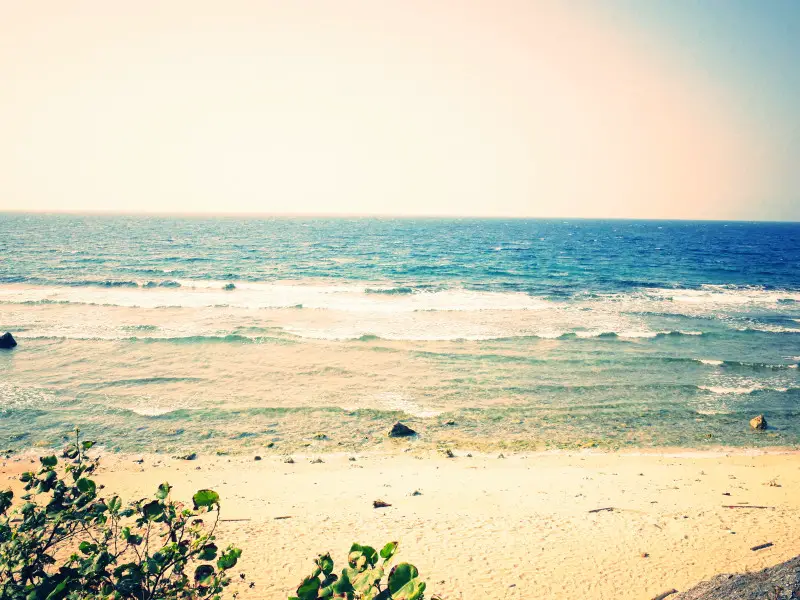
7. Hiking Trails; Old Growth Trees; Natural & Historical Preservation
In a small, densely populated, cosmopolitan, consumerist, future-focused country with state-of-the-art public transportation, a military that has been compared to Israel’s, while occupying an international niche for world-class semiconductors, one might not expect to find gorgeous teeming horizons of old-growth trees, thousands of colorful aging temples, and many hundreds of kilometers of meticulously carved hiking trails winding from concrete cityscape roadsides through shaded, ancient mountain passes.
But that’s Taiwan - more than you could easily be forgiven for expecting. The heartfelt, practical blend of cool circuit-board modernity with traditional purchase and flair that seamlessly pervades Taiwan winds out, up and along enough trails to happily occupy a healthy chunk of any hiking zealot’s career. Anytime but during summer’s hottest, the Clarion calls of Taiwan’s trails and traditions are all but impossible to resist. Amidst all the modern hustle, bustle, and comfort that confine and define modern life, Taiwanese dedication to preserving the best of what was is one beautiful step in bringing about a better to-be.

8. Cuisine
I heard a joke once about the two best ways to rile a Taiwanese. The second-best way is to suggest that Taiwan’s just a wayward Chinese province on its inevitable way “home.” The best way is to insult their cuisine.
From the gooey, shiny, glutinous night market fare to (my personal favorite) gourmet hot-pot extravaganzas, I find little inclination to gravitate towards western cuisine anymore. But that’s not to say that it isn’t deliciously, readily available. Taiwan’s modus operandi of taking the best from everywhere it can applies especially to food. Whatever you’re in the mood for, you can find it done masterfully somewhere in Taiwan.
And when you’re really in the mood for a treat, bring your favorite people to the nicest hot-pot you can find and enjoy!

9. The Tremendous Love for and Investment in the Next Generation
This should have been #1 on the list. Actually, if you think about it, it’s related to everything else I admire the most about Taiwan. It’s what has helped so many foreigners find happiness and success here, and what speaks most powerfully about the ethos that drives Taiwan into an ever brighter, bolder, more prominent future role.
While it’s a matter of evolutionary course that loving and providing for the next generation is a mammalian priority, East Asian cultures seem to exemplify the trend, in some ways. For example, it’s customary for parents here to invest significant portions of their income in order to subsidize and best facilitate their children’s education: where it’s normal in America to pick up an official part-time job in high school or sooner (I was a sophomore when I started), it is more common here for students to receive so much support from family during formal education that even through college, students can focus more on their books rather than on the fine art of flipping burgers and doing other menial tasks.
To be sure, I’m not foisting the odd position that families love their kids more over here. It’s more that there is a general collective ethos of actively considering the best interests of future generations in a greater portion of decisions, here. Expanding the sphere of potential relevancy, if you will. More access to functional public playground equipment, more invested in education - especially into the private sector, and safer streets all speak to this essential ethos.
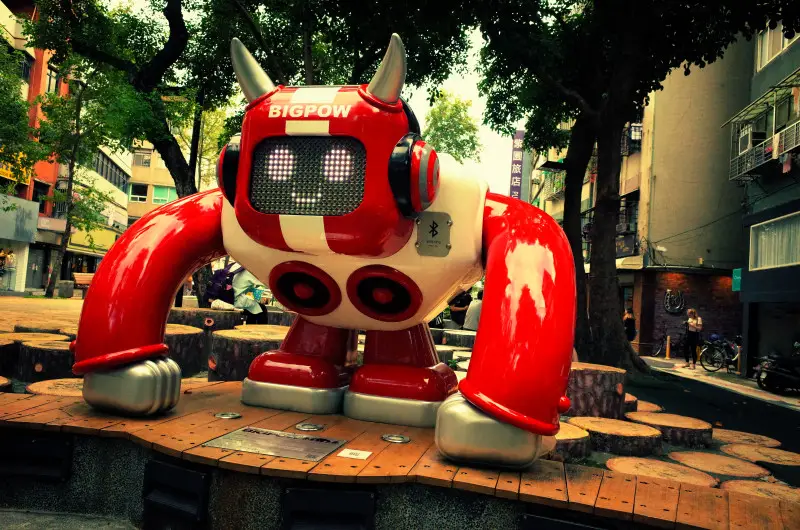
10. Life at a Cosmopolitan Cultural Crossroad
City life in Taipei differs hugely from rural mountain life. And yet in some ways, it doesn’t. As someone who has traveled rather extensively around Taiwan, I’ve noticed firsthand a general national sentiment present from coast to mountaintop to coast.
Now, let’s be clear that it is extremely difficult to ever make broad, sweeping statements about ‘national character’ and pervasive cultural mores. I believe there is, generally speaking, in many significant ways a greater divergence among the inhabitants of any one of the many modern globally-minded countries/cultures than there is between two random inhabitants of two different countries/cultures. But as an American, hailing from the land of do-it-your-way, where proudly donned MAGA hats ride astride souls who would rather buy firearms than get vaccinated are never too far from eloquent imbibers of Noam Chomsky, Marcus Aurelius, and Stephen Hawking, I have noticed a definite sort of ‘Taiwanese attitude’ that has set the tone for the vast majority of the myriad encounters I’ve had here.
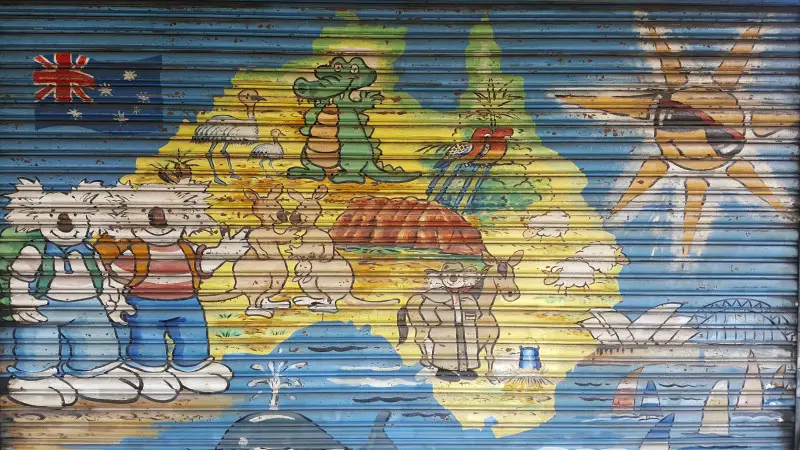
It’s the sort of ethos that prevents swaths of gross vandalism; it prevents inane, flouted ignorance of basic science; it prevents irreverent, unconscionable, inveterate liars from finding their way to the highest public office; it prevents episodes of police violence emerging to plague as they do in another otherwise civilized nation; it engenders polite respect of others and jobs performed respectably.
As a global hub, Taiwan’s eyes are firmly set abroad, as she finds and defines her way in a diverse, dynamic, commercially-minded world. But as a (the?) bastion of traditional Chinese culture, Taiwanese tend to exhibit many laudable traits that can be attributed to Confucian culture - such as friendliness, candor, respectfulness, saying less rather than more, and working both smart and hard.
We can learn a lot from Taiwan. I unabashedly love Formosa, the aptly named Beautiful Island.
